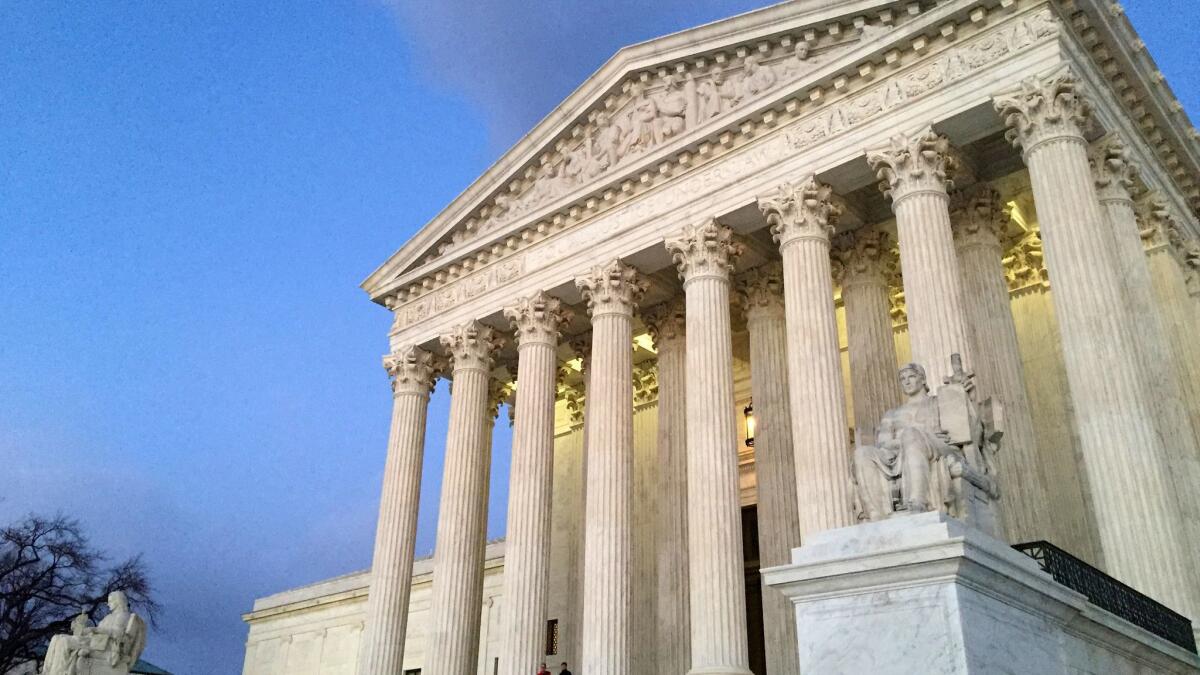Supreme Court rules police may arrest partygoers at a vacant house

- Share via
Reporting from Washington — The Supreme Court put partygoers on notice Monday that they may be lawfully arrested if they show up at a loud and wild party where they do not know the host.
In a 9-0 decision, the justices tossed out a $1 million verdict in favor of 16 partygoers who were arrested inside a vacant house in the District of Columbia.
Police had been called to what was described as a raucous party in a house that had stood unsold. “The officers found a group of people who claimed to be having a bachelor party with no bachelor, in a near-empty house, with strippers in the living room and sexual activity in the bedroom and who fled at the sign of police,” said Justice Clarence Thomas.
Some said they had been invited by “Peaches,” but they did not know her real name and she was not there, he said. Police learned her name by calling the actual homeowner, and she hung up on them.
The arrested partygoers were later released without charges, but they sued for a false arrest and won before judges who said the partygoers may have believed Peaches was the lawful hostess.
In District of Columbia vs. Wesby, Thomas said the police deserved the benefit of the doubt in believing they had probable cause to make the arrests. “Most homeowners do not live in near-barren houses. And most homeowners do not invite people over to use their living room as a strip club, to have sex in their bedroom, to smoke marijuana inside and to leave their floors filthy,” he wrote.
His opinion said the police acted lawfully because they had reason to arrest the partygoers. Justices Ruth Bader Ginsburg and Sonia Sotomayor concurred in the outcome, but said they agreed only that the police were entitled to immunity from being sued.
Major questions before the Supreme Court this fall »
On Twitter: DavidGSavage
More to Read
Get the L.A. Times Politics newsletter
Deeply reported insights into legislation, politics and policy from Sacramento, Washington and beyond. In your inbox twice per week.
You may occasionally receive promotional content from the Los Angeles Times.











